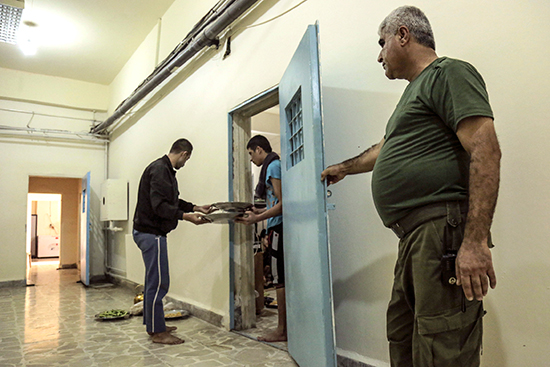New York, May 17, 2017–Kurdish security forces in northern Syria should immediately release Zagros TV journalist Barzan Hussein Liani, the Committee to Protect Journalists said today. Members of the Asayish, the security force for the de facto government of the Rojava region in northern Syria, on May 13 detained Liani as they patrolled the area outside the town of Rmeilan, near Syria’s border with Turkey and northern Iraq, according to his employer.
Zagros TV director Aza Haseeb told CPJ in an email that several witnesses told the station, which is based in the northern Iraqi city of Irbil, that Liani was returning to his home outside Rmeilan at around 2:30 p.m. after making a phone call in the town. The Asayish led him and his vehicle back into the town, where the security forces have an office, and have held him on unspecified charges since.
“Kurdish security forces in northern Syria should release Zagros TV journalist Barzan Hussein Liani without delay,” CPJ Middle East and North Africa Program Coordinator Sherif Mansour said from Washington, D.C. “If separatists in the Rojava region truly hope to establish a democratic state there, detaining journalists is a terrible start.”
Haseeb told CPJ that Asayish members on May 3 refused Liani entry at the Simalka border crossing between northern Iraq and Syria, and that Liani subsequently skirted the checkpoint to return home.
Liani has worked as a correspondent for Zagros TV–which is owned by the Kurdish Democratic Party (KDP), a rival of the predominantly Kurdish Democratic Party Union (PYD), the dominant political force in Rojava–since it launched in 2007, and freelances for several other media outlets, Haseeb told CPJ. Haseeb said that Liani was also a member of the KDP.
Reached by telephone, a representative of the Asayish in northern Syria told CPJ the officer in charge was out of the office and could not immediately comment. Neither Aldar Khalil, a senior political leader in the Rojava region, nor Cowan Ibrahim, head of the Asayish, replied to CPJ’s phone calls or text messages seeking comment.
In August 2015, the de facto authorities in the Kurdish-held territory of Syria announced in a statement that the licenses of Kurdish network Rudaw and Syrian opposition station Orient were being withdrawn for allegedly repeatedly publishing “lies and systematic deception” that incited violence, sparked internal discord, and spread racist ideology, CPJ reported at the time.
